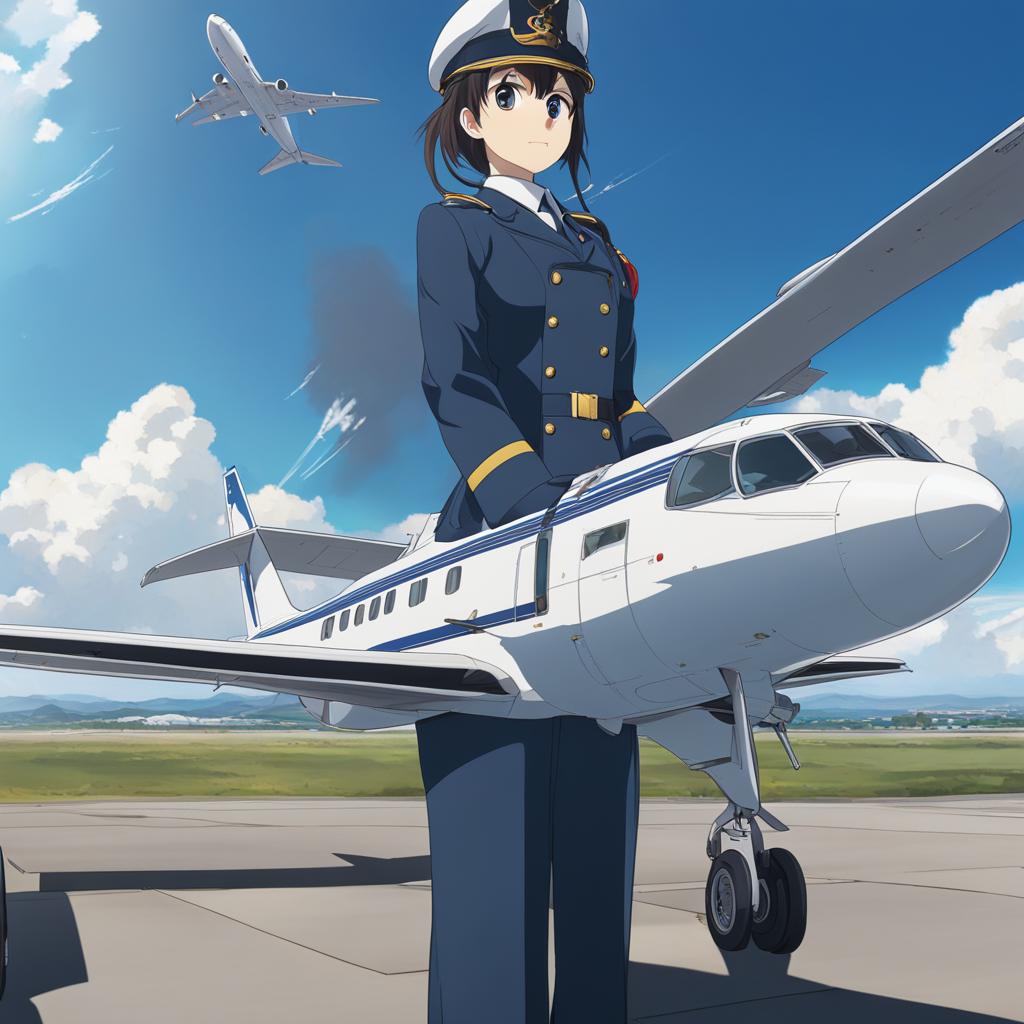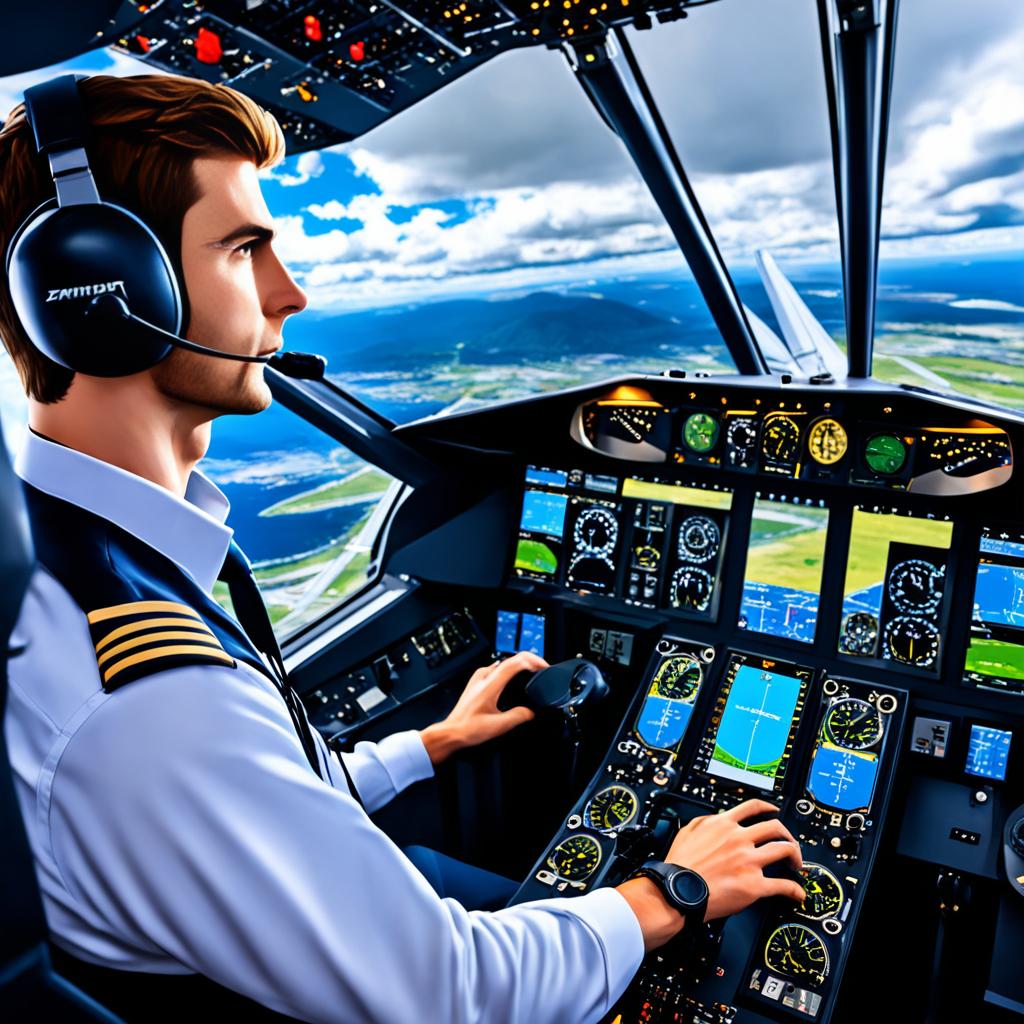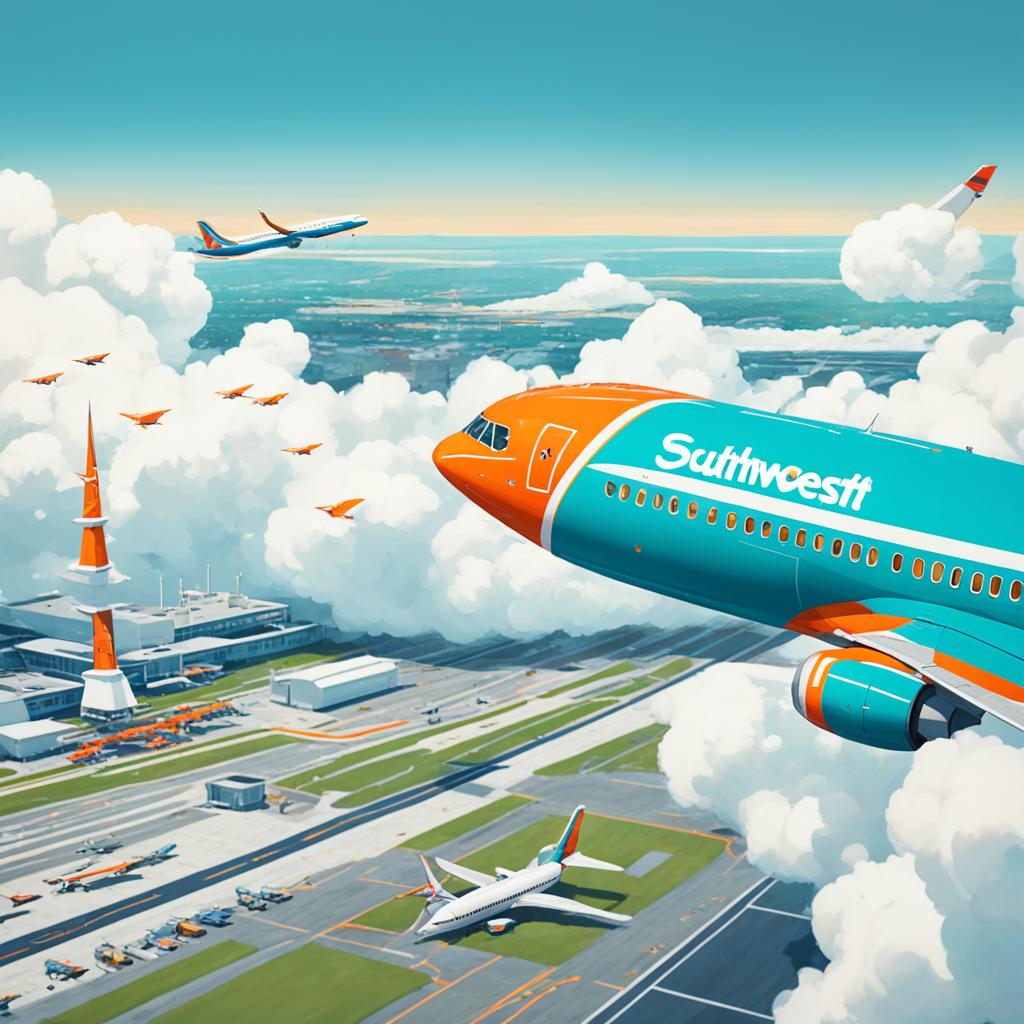Becoming a pilot is a dream that many people hold dear. The allure of soaring through the skies, commanding a complex machine, and exploring the world from above is undeniable. If you’ve ever wondered what it takes to become a pilot for Southwest Airlines, one of the most prominent airlines in the United States, you’re in the right place.
The pilot career path with Southwest Airlines is an exciting journey that offers numerous opportunities for aspiring aviators. From flight training to meeting the requirements and navigating the application process, there’s a lot to consider on your path to becoming a pilot with Southwest Airlines. But one burning question remains: How long does it take?
Join us as we dive into the timelines, training programs, and qualifications required to fulfill your dream of piloting for Southwest Airlines. Whether you’re a recent graduate, a military veteran, or someone looking for a career change, this article will provide valuable insights to help you chart your course towards a successful pilot career.
Requirements for Becoming a Pilot with Southwest Airlines

To become a pilot for Southwest Airlines, you must meet certain requirements and qualifications. These include:
- Hold a U.S. FAA Airline Transport Pilot Certificate
- Be at least 23 years of age
- Have a minimum of 2,500 hours of flight experience or 1,500 hours of turbine flight experience
- Actively fly within the last five years
In addition, candidates must possess a valid FAA Class 1 Medical Certificate, FCC Radiotelephone Operator Permit, and authorization to work in the United States. While Southwest Airlines does not have specific educational requirements, having a college degree is often preferred. Letters of recommendation from individuals who can attest to your flying skills are also required.
The Application and Hiring Process for Southwest Airlines Pilots
Are you ready to take the next step towards your dream career as a pilot at Southwest Airlines? In this section, we will walk you through the application and hiring process, ensuring you have a clear understanding of what to expect.
1. Application Submission
The first step in becoming a pilot at Southwest Airlines is submitting your pilot application. This can be done through the airline’s official website, where you will provide essential information about your qualifications, flight experience, and educational background.
2. Aptitude Assessment
If your application meets the initial requirements, you may be selected to complete an aptitude assessment. This assessment evaluates your cognitive abilities, problem-solving skills, and decision-making capabilities, all crucial attributes for a successful pilot.
3. Virtual Interview
Following the aptitude assessment, you may be invited to a virtual interview. This interview will assess your interpersonal skills, communication abilities, and professionalism. It is an opportunity for you to showcase your passion for aviation and demonstrate why you would be an excellent fit for Southwest Airlines.
4. Cost Responsibilities
It’s important to note that candidates are responsible for the costs associated with the selection process, including the aptitude assessment and virtual interview.
5. Selection and Offer
If selected for the pilot program, you will receive a class date, a formal letter of intent from Southwest Airlines, and information regarding the financial aid process. This is an exciting milestone on your journey towards becoming a Southwest Airlines pilot.
6. Final Decision and Onboarding
The final hiring decision is made by the chief pilots at Southwest Airlines. If you are successful, you will undergo onboarding and training to prepare you for your pilot career. This training will equip you with the necessary skills and knowledge to excel in your role.
7. Takeoff to Your Pilot Career!
Congratulations, you have successfully completed the application and hiring process for Southwest Airlines pilots. Now, it’s time to embark on an exciting journey as a Southwest Airlines pilot, where you will have the opportunity to fly with one of the world’s leading airlines and make a positive impact in the aviation industry.
Stay tuned for the next section, where we will explore the training and career development opportunities available for Southwest Airlines pilots.
Training and Career Development for Southwest Airlines Pilots

Southwest Airlines prioritizes the training and career development of its pilots, ensuring they have the necessary skills and qualifications to excel in their roles. The initial training program for cadets in the Destination 225° Cadet Pathway is a comprehensive 13-month program that prepares participants for a successful career as pilots.
During the training program, cadets receive expert flight instruction and mentorship from experienced Southwest First Officers. This personal engagement and guidance help cadets develop their flying skills and gain valuable insights into the Southwest Airlines culture and operational style. The aim is to foster a strong foundation of knowledge and professionalism, setting them up for successful careers.
Upon completing the program, pilots have the opportunity to further develop their experience and expertise through various avenues. Southwest Airlines provides preferential interviews with program partners, offering pilots additional opportunities to land desirable roles. Additionally, pilots can pursue type ratings, enabling them to fly specific aircraft types and expand their career options.
As part of their ongoing career development, Southwest Airlines pilots undergo recurrent training programs to keep their skills current and maintain a high level of proficiency. This includes regular proficiency checks and evaluation periods to ensure they meet the airline’s safety and operational standards.
Career Development Opportunities for Southwest Airlines Pilots
| Career Development Opportunities | Description |
|---|---|
| Preferential Interviews | Pilots have the chance to interview for desirable roles with program partners, enhancing their career prospects. |
| Type Ratings | Pilots can pursue additional type ratings, allowing them to fly specific aircraft and expand their career options. |
| Recurrent Training | Pilots undergo regular training programs, including proficiency checks and evaluations, to ensure ongoing safety and proficiency in their careers. |
Southwest Airlines is dedicated to the continuous development and success of its pilots, providing comprehensive training and career support. From the initial training program to ongoing professional growth opportunities, pilots are equipped with the necessary skills and knowledge to thrive in their careers with Southwest Airlines.
A Day in the Life of a Southwest Airlines Pilot
Being a pilot at Southwest Airlines involves a structured daily routine. Pilots typically work on 3-day trips, which include flying multiple legs per day and staying overnight at layover destinations. The average flight time for Southwest Airlines pilots is 2 hours and 30 minutes, and the airline does not operate red-eye flights.
Before each flight, pilots go through preflight preparations, including checking the aircraft and filing the flight plan. During the flight, pilots handle all aspects of flying the aircraft, including cruise, navigation, and landing. After the flight, pilots complete post-flight tasks and rest before their next assignment. The schedule allows for a comfortable work-life balance.
Table: Southwest Airlines Pilot Schedule
| Day | Activity |
|---|---|
| Day 1 | Flying multiple legs, staying overnight at a layover |
| Day 2 | Flying multiple legs, staying overnight at a layover |
| Day 3 | Flying multiple legs, returning to home base |
During their layovers, pilots have the opportunity to explore new cities, relax, and rest before their next day of flying. Southwest Airlines prioritizes the well-being and rest of their pilots, ensuring they are adequately prepared for each flight.
To give you a glimpse into the daily routine of a Southwest Airlines pilot, below is an overview of a typical day:
- Arrive at the airport and report to the crew room to meet with the co-pilot and complete pre-flight briefings.
- Review the flight plan, weather conditions, and any special considerations for the day’s flights.
- Perform pre-flight inspections, ensuring the aircraft is in proper working condition.
- Board the aircraft and perform pre-flight checks, including communication with air traffic control.
- Take off and navigate the aircraft, following the planned flight route.
- Monitor the aircraft’s systems, instruments, and fuel levels throughout the flight.
- Communicate with air traffic control and fellow crew members as necessary.
- Landing the aircraft safely at each destination, following established procedures and protocols.
- Complete necessary post-flight tasks, such as filling out paperwork and debriefing with the co-pilot.
- Rest and prepare for the next day’s flights or layover activities.
As you can see, the daily routine of a Southwest Airlines pilot is dynamic and demanding. It requires a high level of technical skill, attention to detail, and the ability to adapt to changing conditions. However, it also offers the opportunity to travel, experience new destinations, and be a part of a passionate and dedicated aviation community.
Is a Career as a Southwest Airlines Pilot Right for You?
Choosing a career as a pilot with Southwest Airlines requires careful consideration. Southwest Airlines, a renowned name in the aviation industry, offers excellent benefits, extensive career development opportunities, and a strong safety record. However, being a pilot is not for everyone and requires dedication and commitment.
To embark on a pilot career with Southwest Airlines, you must be ready to undergo rigorous training and meet the airline’s specific qualifications. This includes obtaining a U.S. FAA Airline Transport Pilot Certificate, having ample flight experience, and staying up-to-date with your flying skills. Southwest Airlines values pilots who are highly skilled, responsible, and have a passion for aviation.
It’s important to note that the life of a Southwest Airlines pilot follows a structured daily routine. You can expect to handle multiple flights per day and have overnight layovers at various destinations. This routine allows for a balance between work and personal life.
However, if you have a genuine passion for flying and the aviation industry, a career as a Southwest Airlines pilot can be exceptionally fulfilling. The opportunity to soar through the skies, the pride of being part of a leading airline, and the job satisfaction that comes with being in command of an aircraft make this career choice an exciting and rewarding one.
FAQ
Q: How long does it take to become a pilot for Southwest Airlines?
A: The estimated timeline to complete the Destination 225° Cadet Pathway program offered by Southwest Airlines is four years, but various factors such as weather and FAA availability can affect this timeline.
Q: What are the requirements for becoming a pilot with Southwest Airlines?
A: To become a pilot for Southwest Airlines, candidates must hold a U.S. FAA Airline Transport Pilot Certificate, be at least 23 years of age, have a minimum of 2,500 hours of flight experience or 1,500 hours of turbine flight experience, and actively fly within the last five years. Additionally, candidates must possess a valid FAA Class 1 Medical Certificate, FCC Radiotelephone Operator Permit, and authorization to work in the United States. While Southwest Airlines does not have specific educational requirements, having a college degree is often preferred. Letters of recommendation from individuals who can attest to the pilot’s flying skills are also required.
Q: What is the application and hiring process for Southwest Airlines pilots?
A: After submitting an application, candidates may be selected to complete an aptitude assessment and a virtual interview. The selection process is competitive, and candidates are responsible for the costs associated with the selection process. If selected for the program, candidates will receive a class date, a letter of intent from Southwest Airlines, and information regarding the financial aid process. The final hiring decision is made by the chief pilots, and successful candidates will undergo onboarding and training before starting their pilot career with Southwest Airlines.
Q: What is the training and career development like for Southwest Airlines pilots?
A: Southwest Airlines provides comprehensive training and career development opportunities for its pilots. The initial training program for cadets in the Destination 225° Cadet Pathway is estimated to be 13 months, with participants earning all necessary flight instructor ratings. Throughout the training program, cadets receive personal engagement and mentorship from experienced Southwest First Officers. After completing the program, pilots have the opportunity to build their experience through preferential interviews with program partners, type ratings, and experience-building opportunities. Pilots also undergo recurrent training programs, proficiency checks, and evaluation periods to ensure ongoing safety and proficiency in their careers.
Q: What is a day in the life of a Southwest Airlines pilot like?
A: Southwest Airlines pilots typically work on 3-day trips, which include flying multiple legs per day and staying overnight at layover destinations. The average flight time for Southwest Airlines pilots is 2 hours and 30 minutes, and the airline does not operate red-eye flights. Before each flight, pilots go through preflight preparations, including checking the aircraft and filing the flight plan. During the flight, pilots handle all aspects of flying the aircraft, including cruise, navigation, and landing. After the flight, pilots complete post-flight tasks and rest before their next assignment. The schedule allows for a comfortable work-life balance.
Q: Is a career as a Southwest Airlines pilot right for you?
A: Choosing a career as a pilot with Southwest Airlines requires careful consideration. While the airline offers excellent benefits, career development opportunities, and a strong safety record, being a pilot is a specialized trade that requires dedication and commitment. Pilots must be willing to undergo extensive training and meet the qualifications set by Southwest Airlines. Additionally, pilots should be prepared for a structured daily routine, including multiple flights per day and overnight layovers. However, for individuals passionate about flying and seeking a rewarding career in the aviation industry, a career as a Southwest Airlines pilot can be incredibly fulfilling.
